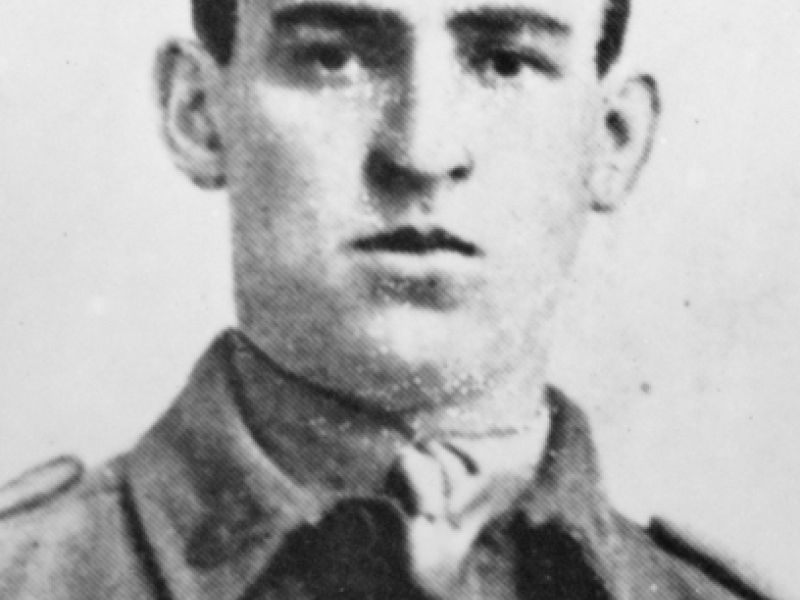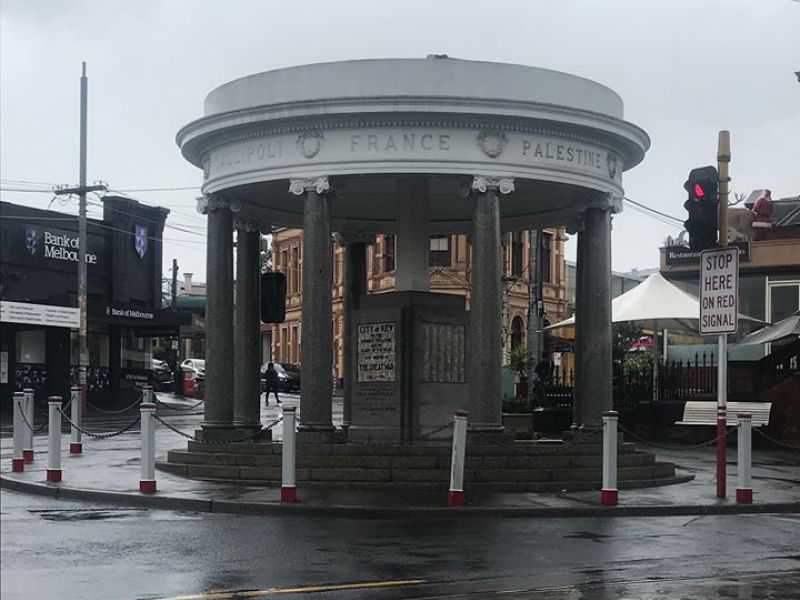2396a Sergeant Vernon Gordon King, 11th Field Artillery Brigade DOW 22 October 1917
Vernon King was born in 1897 in the Melbourne suburb of Kew, one of four children born to Baron and Annie King. King came from a prestigious family, being the Great-Great-Grandson of the third governor of New South Wales, Phillip Gidley King, and received his education at Trinity Grammar School which was just around the corner from his family home on Denmark Street. On completion of his schooling, he took up employment as a clerk with Melbourne shipping company Messers John Sanderson and Co.
Vernon King enlisted in the Australian Imperial Force on 8 March 1915, following in the footsteps of his brother Dorian who had enlisted a year earlier. Allocated to the 24th Battalion, he commenced a short period of training in Australia. On 10 May 1915, he embarked for active service from Melbourne on board the troopship Euripides.
Private King joined his unit on the Gallipoli peninsula in mid-September. Earlier attempts to advance their position during battles throughout August had cost the allies thousands of casualties for very little gain. King’s first months of war were spent holding and defending their lines until the allies evacuated in December 1915.
King returned to Egypt with his unit in early January 1916. In February, he was briefly transferred to the 2nd Field Artillery Brigade before joining the 12th Field Artillery Brigade with the rank of corporal. He arrived on the Western Front in June 1916 and was transferred to the 24th Field Artillery Brigade. Shortly after, he was again promoted, taking on the rank of sergeant.
He took part in his first major battle around the French village of Fromelles, providing artillery support for the attacking units as the Australians took over 5,000 casualties in 24 hours. This was King’s introduction to war on the Western Front.
Following the carnage at Fromelles, in August he was sent north to Belgium where his unit spent time in the front lines around the city of Ypres. It returned to France in December 1916, when King became ill and was sent to hospital in England to recover. He returned to the Western Front in February 1917, joining the Divisional Artillery Headquarters and taking on a temporary administrative role.
In March, King again found himself in hospital, remaining until May. On his recovery, he joined the 11th Field Artillery Brigade but within a month he again required medical attention. He was sent to hospital at Abbeville suffering from an inflammatory condition which affected his legs. He re-joined his unit in Belgium at the end of July 1917, where preparations for a major attack on the Ypres salient were under way.
From September 1917, King’s unit supported allied attacks on German positions in the Ypres sector. It was responsible for providing artillery barrages that covered advancing troops at battles including Menin Road and Polygon Wood. In October, as fighting continued, his unit provided the artillery support at the battle of Broodseinde.
On 21 October, King’s unit was under heavy shell-fire from enemy batteries along Broodseinde Ridge. Sergeant King was with his comrades near Hellfire Corner when an enemy shell hit their position, wounding King and several others. King sustained shrapnel wounds to his right leg, right arm and abdomen, and was taken to the 10th Casualty Clearing Station for treatment. His wounds proved too severe and he died the following day.
His bereaved family later posted a memorial notice to their son and brother in the local newspaper which read: “His bright spirit still tenants the hearts of those who love him.”
Sergeant Vernon King was buried at Lijssenthoek Military Cemetery. He was 20 years old.
- Australian War Memorial https://www.awm.gov.au/collection/R1639405

 Australian War Memorial
Australian War Memorial